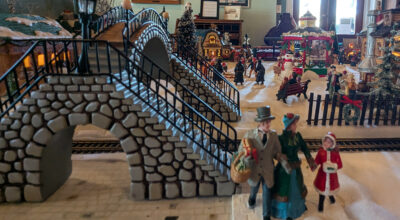City dedicates marker to first black mayor
Published 12:00 am Wednesday, December 2, 2009
By Sarah Nagem
snagem@salisburypost.com
Wiley Lash told his children early on that Salisbury wasn’t going to be segregated forever.
“He taught me to drive so I could drive people to the polls,” Lash’s daughter, Adrienne Jones, said Saturday.
The days of driving black voters to the polls are long gone for 72-year-old Jones. But her father’s legacy as a political activist, desegregation champion and Salisbury’s first black mayor is permanently etched in history.
Dozens of Lash’s family and community members gathered Saturday morning on the corner of Main and Council streets.
Salisbury Mayor Susan Kluttz unveiled a plaque in Lash’s honor on the building that used to be city hall ó the building where Lash made history before he died in 1995.
He served as mayor pro-tem on the City Council from 1979 till 1981. That year, he became the first black mayor, and held the title until 1985.
Despite Lash’s political savvy, some people didn’t think of him as a run-of-the-mill mayor.
“He wasn’t much of a politician,” said John Robinson, who served on the council with Lash. “That’s a good thing.”
Robinson said his colleague had a knack for seeing problems for what they were.
“He knew this town and the people in it like the back of his hand,” Robinson said.
Lash, who was born in 1908, grew up in Salisbury and graduated from Livingstone College in 1934.
He took over the grocery-store business that his mother, Mayzonetta “Mary” Grundy Lash, had started to supplement the family’s income. Lash’s father, Wiley H. Lash, was a minister.
The younger Lash operated Lash’s Self Service Grocery at 129 E. Council St. for decades.
The plaque, which is part of the town’s History and Art Trail, pays tribute to the grocery store.
“The store was an informal hub for political activism and a place where the deserving poor were never turned away,” it reads.
Adrienne Lash spent a lot of her childhood in the store. She worked for her grandmother, and then her father.
Lash’s other daughter, Elaine Sutton, 70, also has fond memories of Salisbury, although she has since moved to Ohio.
“He loved this city,” Sutton said of Lash. “He loved it.”
After having two daughters with his first wife, Lash had a son, Wilbur Thomas. Lash and Thomas’ mother decided to give him up for adoption because, Thomas said, they were not married.
But in the early 1980s, Thomas began looking for his birth parents. Word got around in Salisbury, and Lash called Thomas, who is a Catholic priest in Charlotte.
Lash wanted to meet his son.
“When I saw him and he saw me, we knew there was no doubt we were related,” Thomas said.
He said Lash’s wife, Georgia, who died in 2002, accepted him into their family.
Family was important to Lash, his relatives said Saturday. The plaque’s unveiling coincided with a family reunion in Salisbury.
Olga Welch, 59, is Lash’s niece. She came to town over the weekend from Pittsburgh.
Welch said she spent her childhood summers in North Carolina with the Lashes.
“He always gathered all of us in the evenings after church, and he would take us for a drive through Salisbury,” Welch said.
Lash used to point out spots that were important in local history, Welch said. The trips would usually end with ice cream from Dairy Queen.
The plaque is symbolic to Welch.
“It means a great deal for us, because now he’s taking his rightful place in that history,” she said.
Lash helped shape Salisbury’s history, many people said Saturday.
He served on the school board for 15 years. Some of those years were during the integration of schools.
Lash encouraged ó and helped achieve ó desegregation, many say. And he did it “in his own quiet way,” Robinson said.
“He was not a person who forced things,” said Paul Bernhardt, who served as the mayor of Salisbury from 1968 till 1972. “He negotiated. “He was a great negotiator.”
The plaque sums up his accomplishments: “He rose to political prominence in the Negro Civic League where he spearheaded a drive to register voters and worked for better facilities, jobs, and schools for black citizens.”
But perhaps Lash’s own words, etched into the plaque, shed the most light about the man who made history.
“Let us start anew, and so live that all our ties will bind us to the life that is noble for ourselves and for humanity.”



